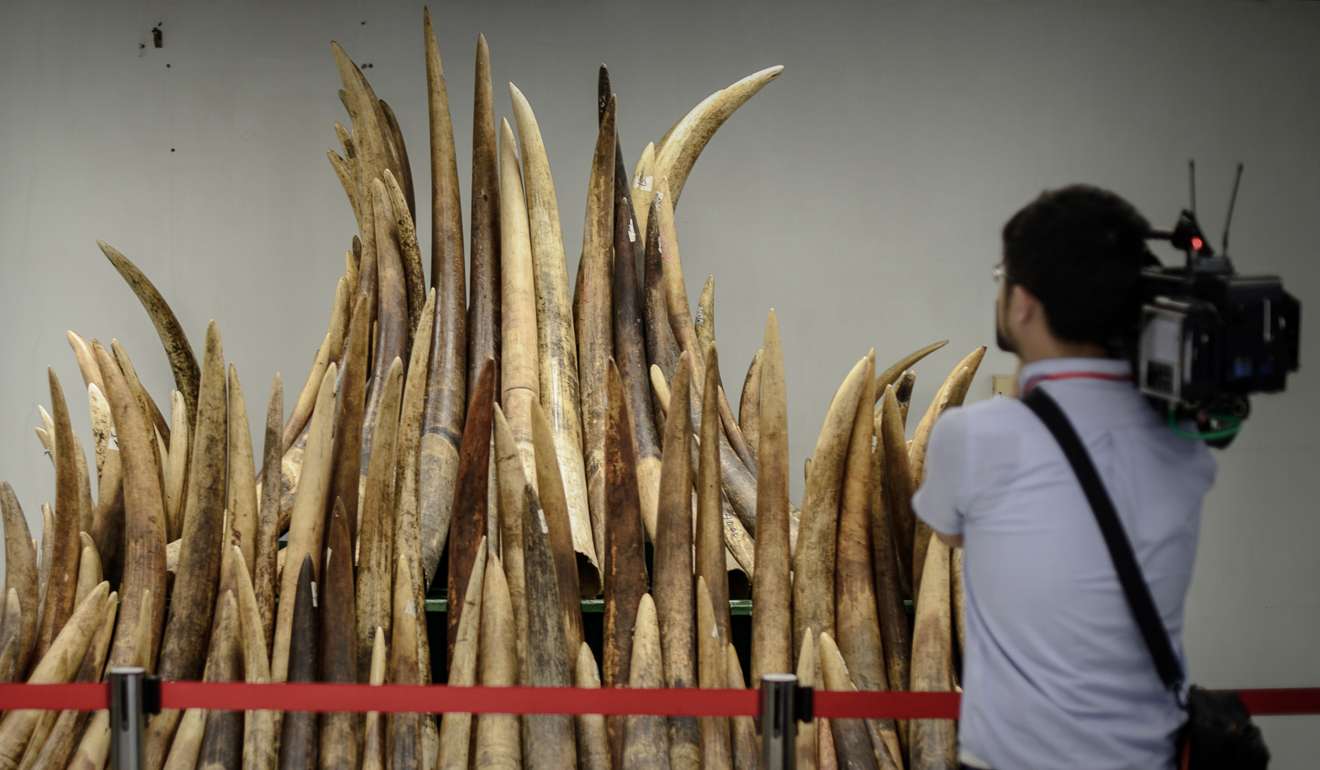
One third of licensed Hong Kong ivory retailers encourage buyers to break the law, report says
Monitoring group Traffic says some licensees press customers to export products without a permit, which is against the law
A third of all Hong Kong’s licensed ivory retailers have actively encouraged buyers to smuggle ivory out of the city without an export permit, which is illegal under the city’s laws, a new report by the wildlife trade monitor Traffic has revealed.
The practice goes to the heart of the questionable conduct of ivory licensees who have long been suspected of engaging in the laundering of so-called “white gold”.
Surveys conducted in 2015 and 2016 for the report found that a third of the 76 licensed ivory stores urged customers to engage in illegal practices by advocating the export of ivory without a required permit.
Wilson Lau, author of the Traffic report and a programme officer for the organisation, said: “Insufficient compliance by the city’s licensed traders highlights major shortcomings with Hong Kong’s current regulation of the local ivory trade.
“Clearly, the regulatory framework together with law enforcement efforts are proving insufficient deterrents, judging by how many ivory traders openly violate the rules.”
Two traders at a store were recently convicted and fined for the possession and sale of illegal ivory following a sting operation by wildlife officers from the Agriculture, Fisheries and Conservation Department posing as buyers.
“This is an official piece of evidence showing that local licence ivory outlets are in fact laundering illegal ivory into the legal market,” Lau said.

Government analysis of chopsticks sold by the store found the ivory was produced after a 1990 local ban on ivory imports came into effect, making its sale illegal.
The Traffic survey found that more than 60 per cent of traders did not display their government-approved ivory trading licence, which is also a breach of the law.
Lau said the study suggested a mix of licensees – some displaying their licence and others not doing so – were involved in encouraging illegal exports.
Dr Yannick Kuehl, the wildlife trade monitor’s regional director for East Asia, said the case to address the illegal ivory trade was “now unequivocal” and that “one way to do so is for the Legislative Council to pass the ivory ban and increased penalties, while enforcement efforts need to be stepped up.”
WWF Hong Kong’s Cheryl Lo, whose organisation co-sponsored the report, said: “Heavier penalties, which would increase deterrence against would-be offenders and discourage criminal syndicates from using the city as a favoured smuggling channel, are urgently needed.”

